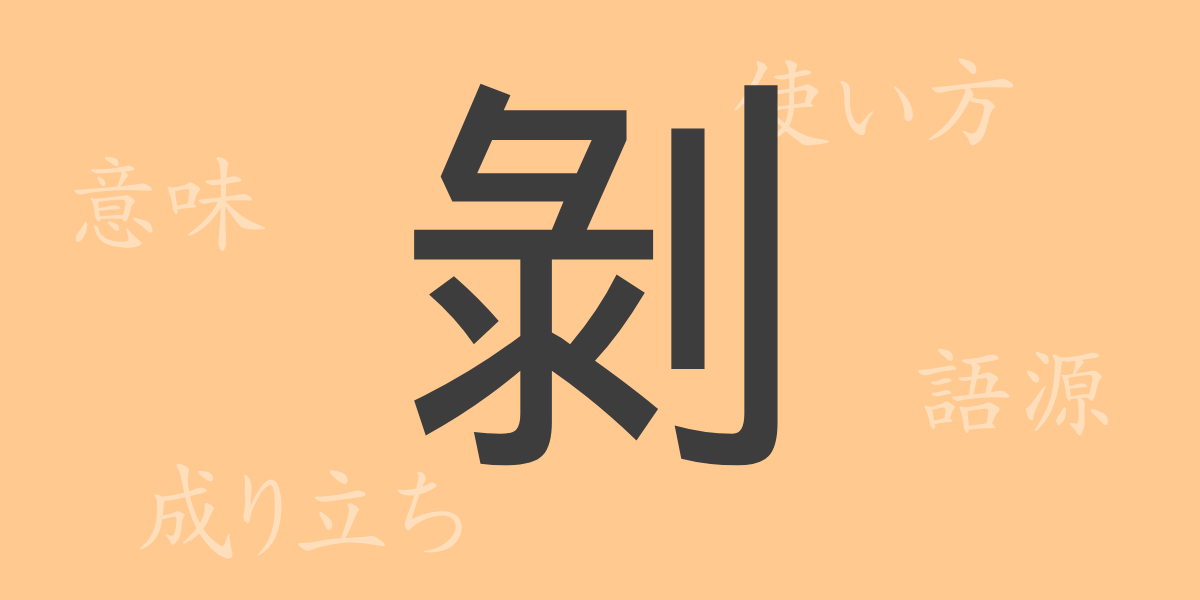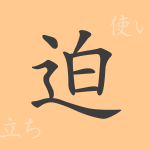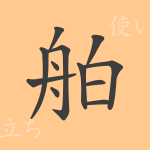In Japanese, the *Joyo Kanji* (常用漢字, *Jōyō kanji*) plays a crucial role in expressing the rich meanings and emotions embedded in words. One such commonly used kanji is “剝” (*剥*, *haku*; peel, strip), which appears frequently in daily life. However, its origins and diverse applications might not be as widely known. This article explores the origins, meanings, usage, readings, and compounds involving “剝,” revealing the appeal of this kanji.
The Origin of 剝 (剥)
The kanji “剝” (*剥*, *haku*) originated from ancient Chinese *oracle bone script*. Initially, it was a pictographic character representing the action of peeling the skin off a fruit. Over time, the meaning expanded to include peeling off or stripping away various things, symbolizing acts of removal or separation.
Meanings and Usage of 剝 (剥)
The kanji “剝” (*剥*, *haku*) encompasses meanings such as “剥ぐ” (*hagu*, to peel), “剥れる” (*hagureru*, to come off), and “剥がす” (*hagasu*, to peel off). These terms are often used to describe physical actions like peeling the skin off fruit, removing wallpaper, or peeling off a sticker. Metaphorically, it can also describe revealing hidden truths or uncovering something previously concealed.
Readings, Stroke Count, and Radical of 剝 (剥)
Let’s examine the readings, stroke count, and radical of the kanji “剝” (*剥*, *haku*).
- Readings: On’yomi (音読み) – “ハク” (*haku*); Kun’yomi (訓読み) – “はがす” (*hagasu*), “はぐ” (*hagu*), “はがれる” (*hagureru*), “はげる” (*hageru*)
- Stroke count: 10 strokes
- Radical: 刀部 (りっとう, *rittō*), associated with blades or knives
Idioms, Expressions, and Proverbs Using 剝 (剥)
The kanji “剝” (*剥*, *haku*) appears in various idioms, expressions, and proverbs, such as:
- 皮を剝ぐ (*kawa o hagu*): Literally “to peel off the skin,” also metaphorically means to reveal hidden truths or expose a person’s true nature.
- 一皮剝ける (*hitokawa mukeru*): Describes someone undergoing significant personal growth or transformation, becoming noticeably different or improved.
- 剝落 (*hakuraku*): Refers to something falling off, especially thin layers like paint or surface coatings peeling away.
Conclusion on 剝 (剥)
This article has delved into the multifaceted appeal and usage of the kanji “剝” (*剥*, *haku*). As a commonly used *Joyo Kanji* in Japanese, “剝” enhances our expressions, and understanding its origins and modern applications allows for a deeper appreciation of the language. By using “剝” accurately and effectively in our daily communication and writing, we can elevate our mastery of the Japanese language.

























